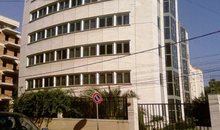
 Flash News
Flash News
The body of a 29-year-old man in Klos is found after 6 days
Arrested a few meters from SPAK, the Special Prosecution seeks 17 years in prison for the drug 'boss'
Giro D'Italia starts today, here are the road axes that will be blocked in Tirana from 13:00-18:00
Who is the new Pope?
Pope Leo XIV greets the faithful for the first time in St. Peter's Square

Altin Gjeta
Within a period of two weeks, the prime minister of Kosovo, Albin Kurti, has warned that the possibility of an open conflict with Serbia is a real danger. Contrary to the initial predictions after the Russian aggression in Ukraine, the international community's attention to the Western Balkans, and Kosovo in particular, has not known any substantial change. In this context, the prime minister of Kosovo is ringing the alarm bell to turn the attention of the western factor from Kosovo, which has been isolated internationally, without visa liberalization with the EU, and without new recognition since 2020, when it was recognized by Israel thanks to the Washington agreement.
Getting out of isolation requires that Kosovo, in addition to the dialogue for the normalization of relations with Serbia, revive the policy of increasing recognition, in a favorable international context after Russia's kneeling in Ukraine.
Although the dialogue remains important, joining the Brussels dialogue as if it were a "golden bullet" for the citizenship of Kosovo, at a time when for more than a decade it has not reached the final goal, mutual recognition with Serbia, would be a mistake strategic for Kosovo.
The dialogue, in addition to producing controversial agreements such as the creation of the Community of Municipalities with a Serbian majority, has spent a lot of energy on Kosovo and kept the issue of its citizenship open. It is already clear that Brussels' diplomacy of ambiguity and small steps do not address Kosovo's urgent need to become an integral part of the community of states and international organizations. Even after Serbia's soft approach towards Russia, the West's policy remains on the idea of anchoring Serbia in the Western bloc. This intention was made clear in a recent interview for the Atlantic Council, the US Ambassador in Belgrade, Christopher Hill, who emphasized that our policy is to turn Serbia towards the West.
Therefore, one cannot expect an energetic policy of pressure from the USA and the EU towards Serbia. The Albanian factor must understand that American policy does not revolve around him, but around geostrategic interests in a broader context than the Balkans.
In addition, Kosovo's foreign policy should revive the recognition policy at a time when Serbia is internationally tainted for not imposing sanctions on Russia. Moreover, Russia, Serbia's most important ally at the UN and in international relations, is mired in the Ukrainian conflict and stands weaker than ever in the international arena.
This is a critical moment that should be used by Kosovo's foreign policy in two ways:
First, by lobbying the Western factor and the states that have not recognized it, for increasing recognition in the international arena. For example, the rapprochement with Greece is a positive example that can pave the way for new acquaintances.
Second, by discrediting the image of Serbia as a state that committed genocide in the Balkans, that poses a danger to the peace and stability of the region and does not follow the Western policy of sanctions against Russia.
In order to increase recognition and strengthen its citizenship, Kosovo should learn from its not-too-distant history.
After the liberation of the country by international NATO troops in 1999, the international factor delayed the final status resolution for about eight years. According to the researcher of the Balkans, James Ker-Lindsay, this was probably the biggest mistake of the West in Kosovo. At a time when Russia, Russia's only significant ally, had just emerged from the dissolution of the Soviet Union and was mired in economic crisis and uncertain in the international arena, the West, at the height of its power, did not act quickly in Kosovo, in order to impose Kosovo's independence and citizenship at an internationally favorable moment.
After twenty years, with Russia's hands busy in Ukraine and Serbia discredited as its only ally in Europe, it is time for Kosovo's foreign policy to be pragmatic, visionary, and dynamic. Without visible progress in the Brussels dialogue process, Pristina must recalibrate its foreign policy towards new recognitions.
Latest news

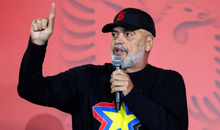
Is Rama ready to become the next Hoxha?
2025-05-09 13:50:12
Election materials arrive in Kukës, Has and Tropoja
2025-05-09 13:30:20
Electoral flight to Vlora
2025-05-09 13:18:04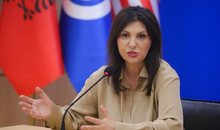

IdentiTek offices open on Saturdays
2025-05-09 13:03:13
Will artificial intelligence help us talk to animals?
2025-05-09 12:55:58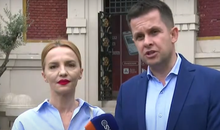



Rama's fourth act: between Brussels and the Mafia
2025-05-09 12:12:47
The body of a 29-year-old man in Klos is found after 6 days
2025-05-09 12:01:27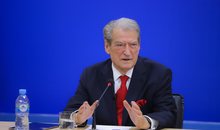
Berisha: After May 12, this opposition will become the majority in Albania
2025-05-09 11:52:37
Leo XIV celebrates his first Mass as Pope
2025-05-09 11:42:34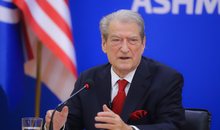
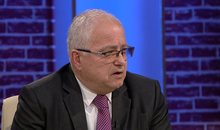
Spaho denounces: SP candidate in Pogradec gives 100 thousand lek for the vote
2025-05-09 11:27:26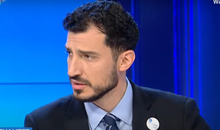
Mustafaj: Proud of the worthy campaign of the DP
2025-05-09 11:22:20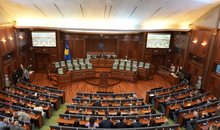
Constitution fails again, Kosovo still without a new Assembly
2025-05-09 11:06:55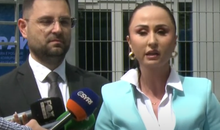

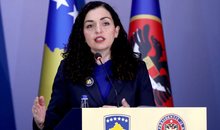



"Votes have no price", the US embassy in Tirana 'slaps' Rama
2025-05-09 10:06:49

Two young men arrested for supplying criminal groups with firearms
2025-05-09 09:45:19
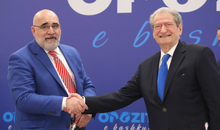

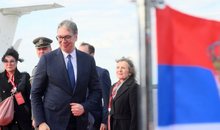

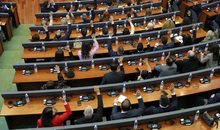


Foreign exchange/ How much foreign currencies are bought and sold today
2025-05-09 08:19:18
The gift that Berisha gave to Rama 'live'
2025-05-09 08:13:51
3 signs that show you are spiritually protected
2025-05-09 08:05:39

Bars can't hold back anymore, start increasing coffee prices, 4.7% more in April
2025-05-09 07:46:49

Horoscope, what do the stars have in store for you today?
2025-05-09 07:22:06
Unstable weather, afternoon brings rain
2025-05-09 07:01:29
Morning Post/ In 2 lines: What mattered yesterday in Albania
2025-05-09 06:45:46

How did LaCivita change the DP campaign? Berisha: He studied the opponent
2025-05-08 22:49:51

David defeats Goliath
2025-05-08 22:15:50

Journalist: There are SPAK infiltrators in party headquarters
2025-05-08 21:55:15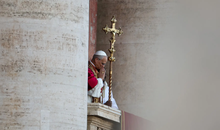
Who is the new Pope?
2025-05-08 21:48:13
Berisha finally reveals when he will retire from politics
2025-05-08 21:33:46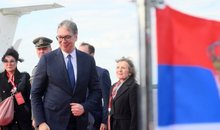


LaCivita in Lezha: Albanians will fire Edi Rama from his job
2025-05-08 21:11:20


Berisha: LaCivita chose us because he believes in Reagan's program
2025-05-08 20:48:40
He rejected America to serve Pogradec, Genti Çela tells about life in "Elevate"
2025-05-08 20:26:28



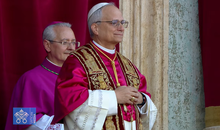
Pope Leo XIV greets the faithful for the first time in St. Peter's Square
2025-05-08 19:29:33




Photo session with LaCivitta in Tirana: For Great Albania
2025-05-08 18:40:18
Source: DASH decision a personal victory for Berisha
2025-05-08 18:30:10
Take off those crazy glasses and see where you've taken him?
2025-05-08 18:02:47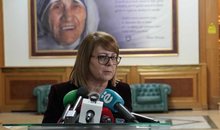
LDK files criminal charges against members of the incumbent Government
2025-05-08 18:02:00

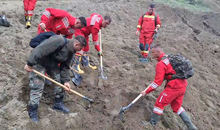


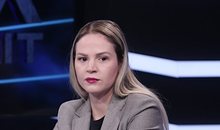


BIRN analysis: Tirana, the determining district for the future majority
2025-05-08 16:04:03




Chris LaCivita's contract with the DP, Berisha: 100% correct and clean
2025-05-08 15:11:11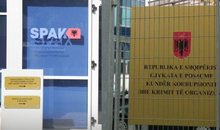
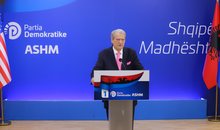
"These are the peak days", Berisha reveals when he will travel to the USA
2025-05-08 14:45:25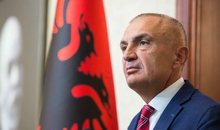
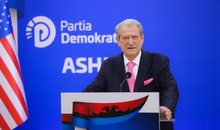
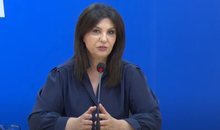
Endless boxes with filled-in ballots, DP demands separation of votes from Greece
2025-05-08 14:11:12


Photo/ Who are the 3 associates of Talo Çela arrested in Dubai?
2025-05-08 13:37:09

Hetimi për krimet zgjedhore, Altin Dumani zbarkon në Prokurorinë e Shkodrës
2025-05-08 13:06:21
DASH paves the way for Berisha, Alizoti: Great news on the eve of Great Albania!
2025-05-08 13:03:48

"Freedom works", DP welcomes the US position
2025-05-08 12:48:07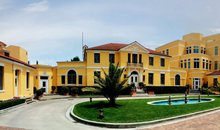

Black smoke rises from the Sistine Chapel, the Vatican still without a Pope
2025-05-08 12:26:18

